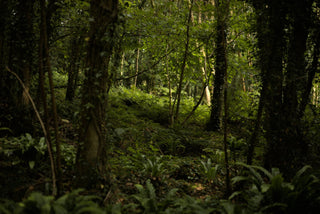Our Innate Connection with Nature


The hypothesis of biophilia, proposed by renowned biologist Edward O. Wilson in 1984, suggests that humans possess an inherent affinity and emotional connection with nature.
Biophilia, derived from the Greek words "bios" (life) and "philia" (love), postulates that our evolutionary history has shaped us to seek out and find solace in the natural world.
This article explores the hypothesis of biophilia, its implications for human well-being, and the evidence supporting its validity.
Biophilia argues that humans have an innate desire to connect with nature due to our long-standing coexistence with the natural environment.
Throughout our evolutionary journey, we depended on the natural world for survival, from gathering food to seeking shelter. Consequently, our brains developed a deep-seated connection with nature, and exposure to natural settings elicits positive emotional responses.
Biophilic design and incorporating nature into our built environments have gained traction in recent years due to the growing recognition of the impact nature has on human well-being.
Research suggests that exposure to natural environments can enhance cognitive function, improve mood, reduce stress, and promote physical health. Nature-based interventions, such as spending time in parks or gardens, have been linked to lower blood pressure, reduced anxiety, and increased mental restoration.
Various architectural and design principles have been developed to incorporate biophilic elements into our surroundings.
These principles emphasize the integration of natural light, views of nature, and the presence of natural elements like plants, water, and natural materials. Biophilic design aims to create environments that mimic or evoke nature, promoting well-being, productivity, and creativity. Examples include indoor green walls, large windows overlooking green spaces, and the incorporation of natural materials such as wood and stone.
One of the notable implications of the biophilia hypothesis is the therapeutic potential of nature.
Studies have shown that exposure to natural environments can have positive effects on individuals suffering from various physical and mental health conditions. Nature therapy, or ecotherapy, is now being used as a complementary approach in healthcare settings, aiding in the treatment of conditions such as depression, anxiety disorders, and attention deficit hyperactivity disorder (ADHD).
Research conducted over the years has provided empirical support for the hypothesis of biophilia.
Neuroscientific studies using functional magnetic resonance imaging (fMRI) have revealed that exposure to nature activates brain regions associated with positive emotions, attention restoration, and reduced stress. Other studies have found that hospital patients with views of nature have shorter recovery times and require less pain medication. Additionally, research in urban environments has demonstrated that access to green spaces is associated with improved mental health and reduced crime rates.
Humans, as a species face a problem. In a time where the loss of our planets biodiversity is evident more than ever before and fragmentation and degradation of habitats are occurring faster than can naturally return, do we really understand the full impact that this can have on us?
At Inhabit, we believe that humans do have this innate need to affiliate with plants, animals and natural environments and that the negative effects of the loss of the ability to understand when our bodies require this can ripple throughout our lives. Research suggests that those that feel greater connected to nature are more likely to behave positively towards the environment, wildlife and habitats. But we need healthy ecosystems in the first place for this connection. One could call it a feedback loop.
The hypothesis of biophilia asserts that humans possess an intrinsic bond with the natural world, shaped by our evolutionary history. The connection with nature has profound implications for human well-being, influencing our mental, emotional, and physical health. As we continue to navigate an increasingly urbanized and technologically driven world, recognizing and integrating biophilic elements into our built environments becomes crucial. By fostering our innate biophilic tendencies, we can create healthier, happier, and more sustainable living spaces that nourish our deep-rooted connection with nature.